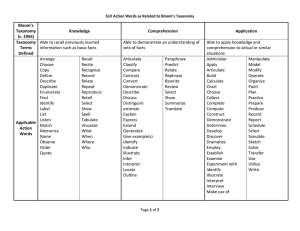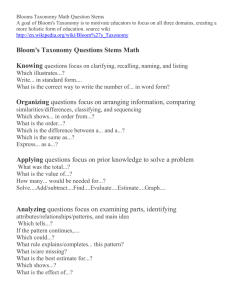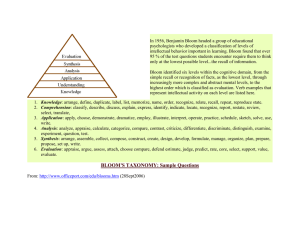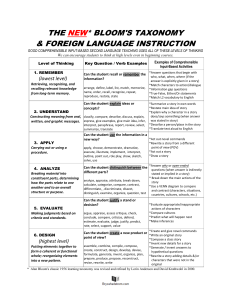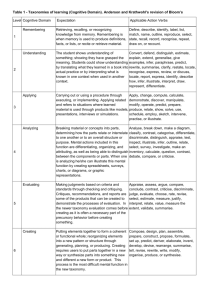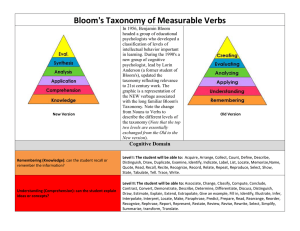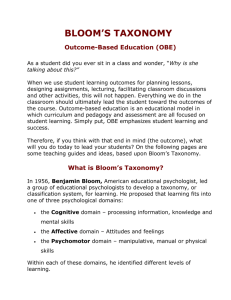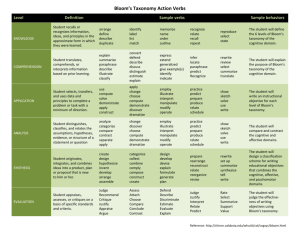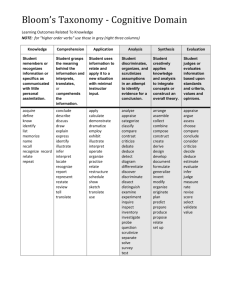ESP Undergraduate Bloom`s Evaluation Form
advertisement
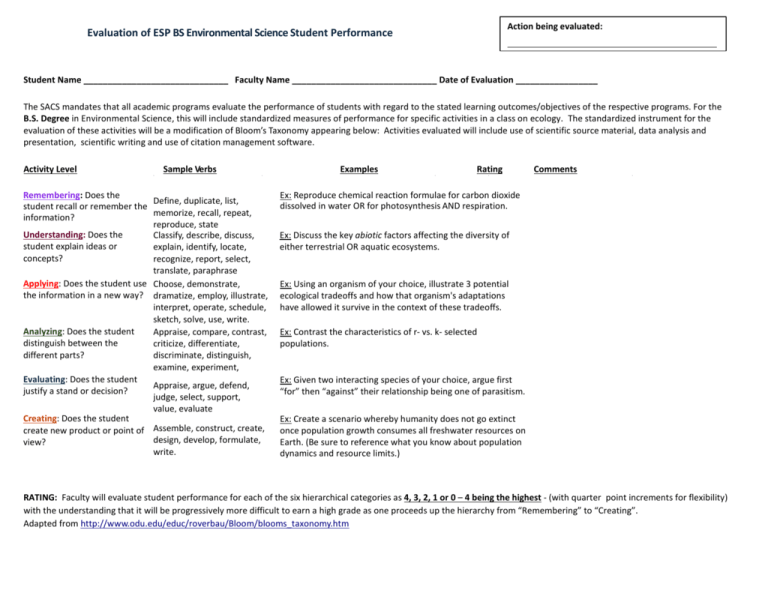
Action being evaluated: Evaluation of ESP BS Environmental Science Student Performance Student Name ______________________________ Faculty Name ______________________________ Date of Evaluation _________________ The SACS mandates that all academic programs evaluate the performance of students with regard to the stated learning outcomes/objectives of the respective programs. For the B.S. Degree in Environmental Science, this will include standardized measures of performance for specific activities in a class on ecology. The standardized instrument for the evaluation of these activities will be a modification of Bloom’s Taxonomy appearing below: Activities evaluated will include use of scientific source material, data analysis and presentation, scientific writing and use of citation management software. Activity Level Sample Verbs Remembering: Does the Define, duplicate, list, student recall or remember the memorize, recall, repeat, information? reproduce, state Understanding: Does the Classify, describe, discuss, student explain ideas or explain, identify, locate, concepts? recognize, report, select, translate, paraphrase Applying: Does the student use Choose, demonstrate, the information in a new way? dramatize, employ, illustrate, interpret, operate, schedule, sketch, solve, use, write. Analyzing: Does the student Appraise, compare, contrast, distinguish between the criticize, differentiate, different parts? discriminate, distinguish, examine, experiment, question, test. Evaluating: Does the student Appraise, argue, defend, justify a stand or decision? judge, select, support, value, evaluate Creating: Does the student create new product or point of Assemble, construct, create, design, develop, formulate, view? write. Examples Rating Comments Ex: Reproduce chemical reaction formulae for carbon dioxide dissolved in water OR for photosynthesis AND respiration. Ex: Discuss the key abiotic factors affecting the diversity of either terrestrial OR aquatic ecosystems. Ex: Using an organism of your choice, illustrate 3 potential ecological tradeoffs and how that organism's adaptations have allowed it survive in the context of these tradeoffs. Ex: Contrast the characteristics of r- vs. k- selected populations. Ex: Given two interacting species of your choice, argue first “for” then “against” their relationship being one of parasitism. Ex: Create a scenario whereby humanity does not go extinct once population growth consumes all freshwater resources on Earth. (Be sure to reference what you know about population dynamics and resource limits.) RATING: Faculty will evaluate student performance for each of the six hierarchical categories as 4, 3, 2, 1 or 0 – 4 being the highest - (with quarter point increments for flexibility) with the understanding that it will be progressively more difficult to earn a high grade as one proceeds up the hierarchy from “Remembering” to “Creating”. Adapted from http://www.odu.edu/educ/roverbau/Bloom/blooms_taxonomy.htm
